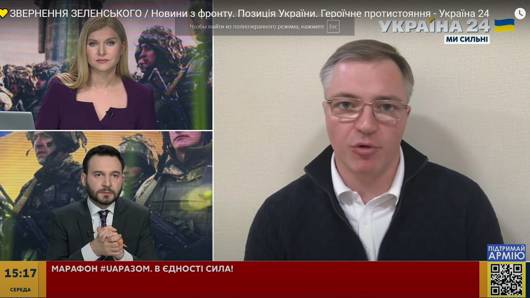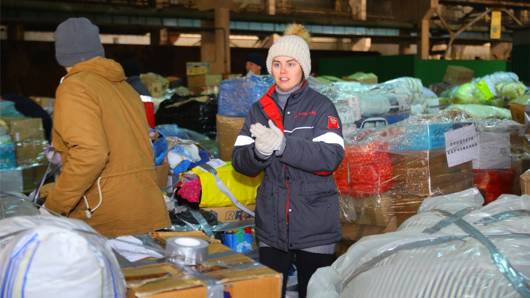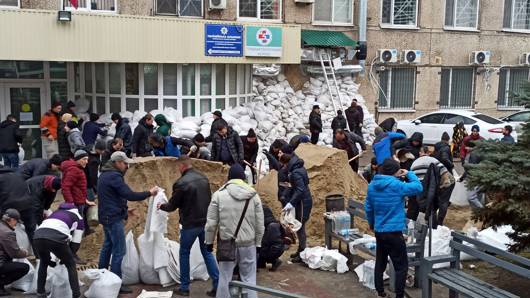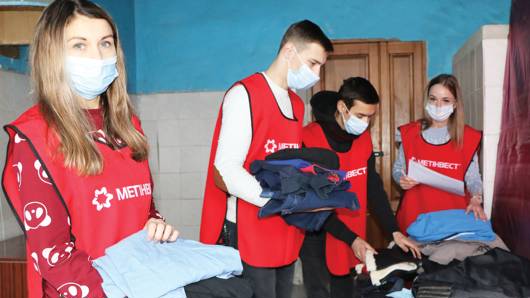Recently, a press event was held in Brussels, where Ukrainians from different cities told their stories of survival and salvation, and talked about the losses suffered by hundreds of thousands of people after Russia’s invasion of Ukraine. The event was held at the Ukrainian Civil Society Centre in the European Parliament by the Promote Ukraine group.
Everyone told their own story and the tragedy of their hometowns and all of Ukraine. Among the speakers was Ivan Goltvenko, director of personnel and administration at Azovstal, a subsidiary of Metinvest Group. Ivan was able to join the event online and talked about how he evacuated his parents from the city. He showed photos of life in Mariupol before and after the Russian invasion: the residential buildings, architectural sights and recreation areas that Mariupol residents loved dearly. Now, the Russians have destroyed almost the entire city. Many people are still in basements and bomb shelters in Mariupol. They have no food, water, light, heat and or communication. For more than a month, Russia has not stopped bombing Mariupol from aviation, artillery and multiple launch rocket systems
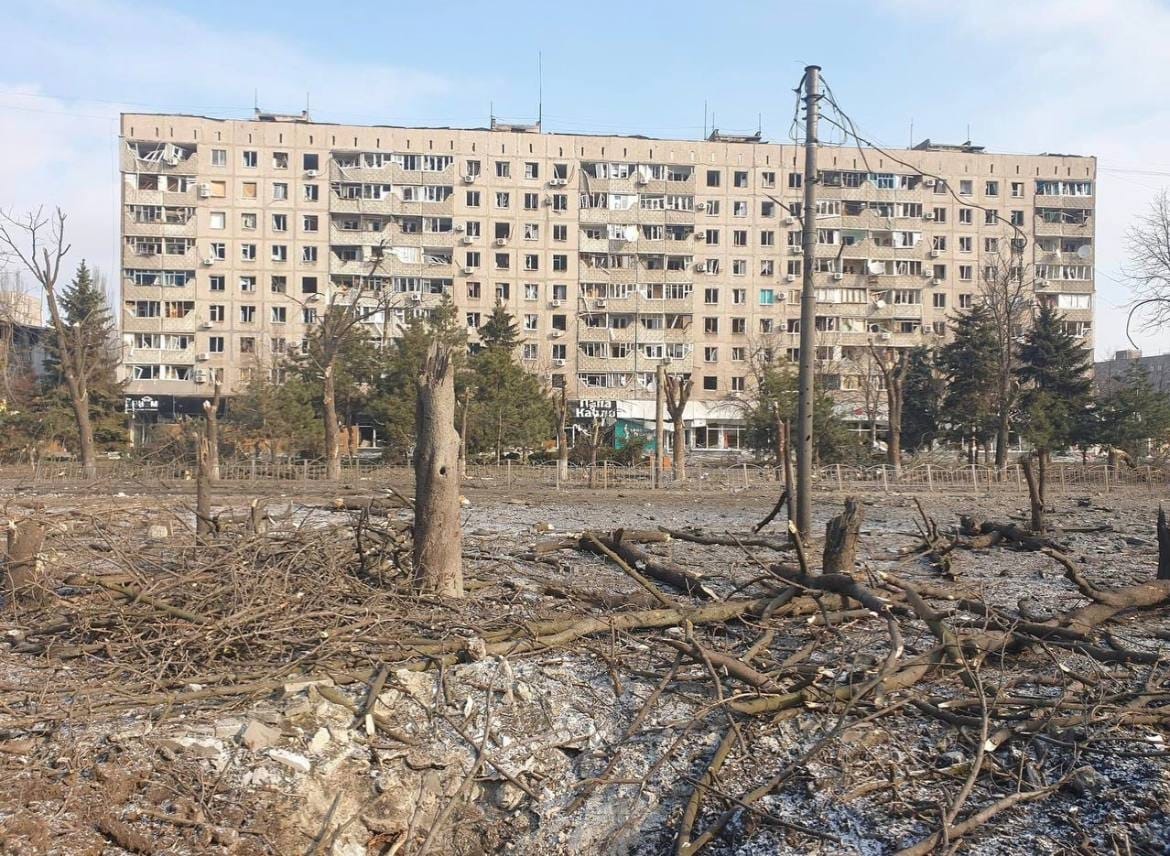
Ivan Goltvenko noted that he has worked at Azovstal his entire life. He said that from the first hours of the war, all the production facilities of Metinvest Group in Mariupol began to be switched to hot conservation mode.
“Our specialists knew exactly what to do and the understood importance of doing everything in the correct order to prevent a man-made disaster in Mariupol,” Ivan emphasised. “The gas supply was cut off to avoid a leak and the workshops were cooled and mothballed in accordance with technological standards. Later, after the victory of Ukraine, we will be able to rebuild and resume production. This will guarantee stable jobs for Mariupol residents, revive the region’s economy and support Ukraine.”
The Ukrainian speaker also noted that the bomb shelters at Metinvest Group’s enterprises in Mariupol were open to all residents of the city from the first days and had supplies of food and water. Ukrainians are also hiding from Russian shelling in other buildings in Mariupol.
During the online discussion, Ivan Goltvenko especially noted the tragedy of the Drama Theatre. For many years, the theatre was an ornament and cultural centre of the city. During the war, it became a refuge for hundreds of city residents. The Russians dropped a powerful bomb right in the middle of the theatre. Not even the word “CHILDREN” spelled out in huge letters on the ground on both sides of the Theatre and the Garden Square was enough to stop them.
“My colleague was inside the building. He told me about the screams of children buried under the rubble. Emergency services could not reach them because the bombing did not stop,” says Ivan.
Ivan Goltvenko himself was in the city until March 6. Those days, there was a lot of talk about a possible “humanitarian corridor”, which the Russian invaders did not allow to open. He helped to evacuate his parents in a convoy of several dozen cars with women, children and the elderly that escaped the siege of the city and navigated the obstacles at the checkpoints that the Russian attackers had already set up in some towns between Mariupol and Zaporizhia.
“It wasn’t a ‘humanitarian corridor’. It was a corridor of terror and suspense. We didn’t know what awaited us in 100 metres and whether we would remain alive,” says Ivan. “But we didn’t stop. Yes, we were scared, in such a situation it is impossible not to be afraid, but we men were responsible for the women, children and elderly people who rode with us in that convoy. And we managed to get out.”
By the way, the Russians have not yet opened a “humanitarian corridor” to Ukraine. People are getting out in their own cars or on foot. Since the first days of March, Metinvest Group has formed a convoy with humanitarian aid and transport for the evacuation. Unfortunately, the enemy has not fulfilled its obligations and has continued shelling all previously agreed routes.
From the moment Ivan Goltvenko was able to get out of Mariupol, he has been helping Mariupol residents, steelmakers and their families – all those in need – to escape the city.
“The Rinat Akhmetov Foundation, Metinvest Group and other SCM businesses have deployed humanitarian crisis centres since the first days. Tonnes of humanitarian aid from European countries have been staged at a Metinvest facility in Poland and then delivered to a single centre created at Zaporizhstal,” said Azovstal’s director of personnel and administration. “Volunteers distribute humanitarian aid to the cities and deliver it to the people exposed to these horrific events.”
Metinvest employees also assist in the resettlement of colleagues and their families. In Zaporizhia, Kryvyi Rih, Pokrovske and Kamianske, places have been set up for more than 6,000 refugees. Beds, food and household necessities have been provided.
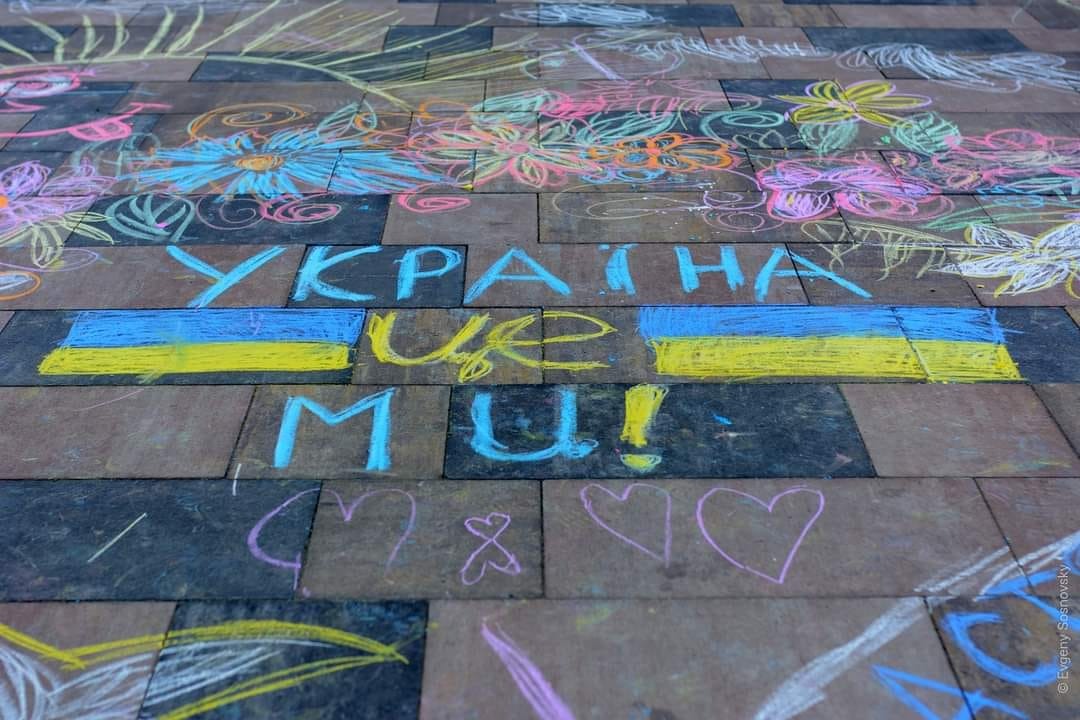
Read about the current situation at Metinvest Group companies on a special long-read. Information is updated 24/7. Bookmark and share with friends. Keep calm and trust only official sources.






